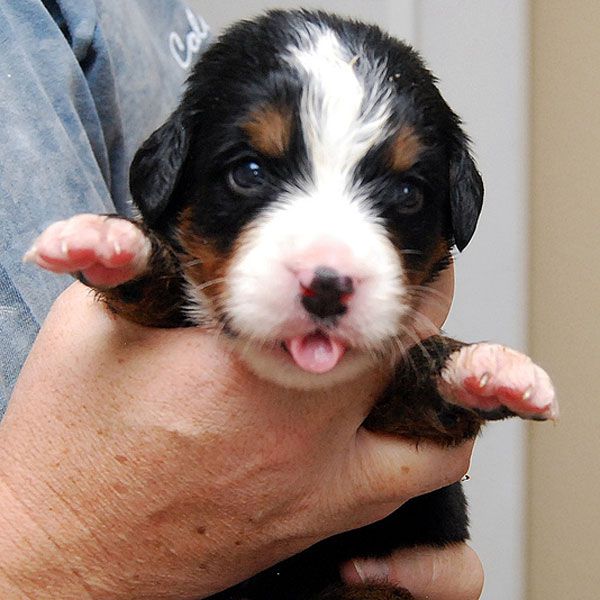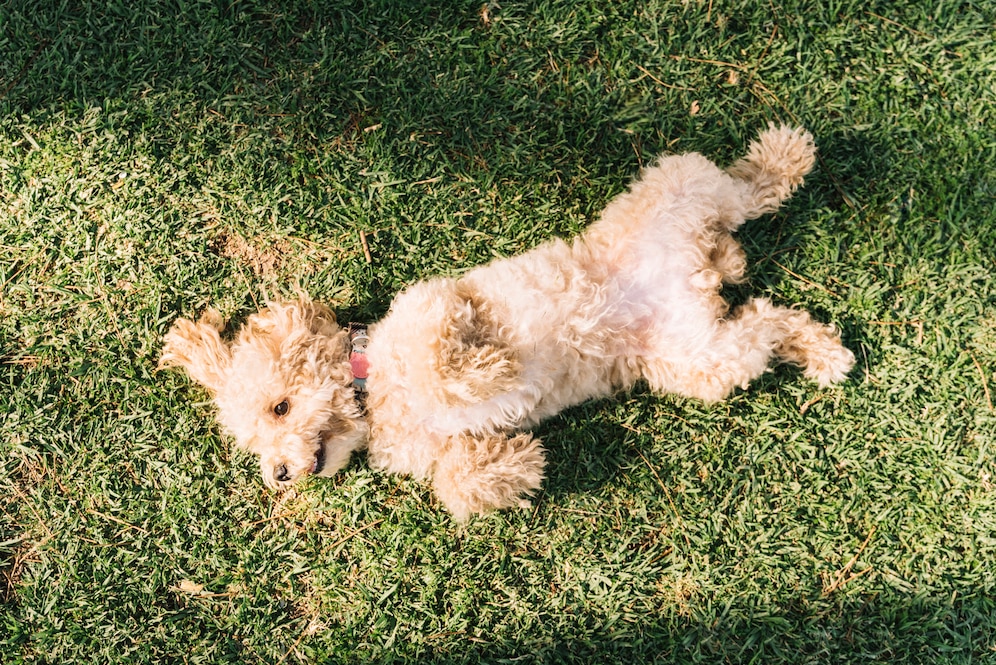
So you've decided that you want to get another dog. How much should you pay? Should you get a dog that will fight MMA fights and New York Times crossword puzzles? Or should you get a dog that will play fetch, run in the park, and socialize with other dogs? You might consider the life you would want for your dog if it's already been adopted.
Adopting an additional dog saves lives
You may think that adopting a second dog will add a lot of work to your life, but you'll be surprised by how many benefits you'll enjoy. You will not only be able to show your current dog more love, but you will also save another dog's life. You will also be saving another dog's life. Adopting two dogs can save the life a dog and improve your mental health.
If you already own a dog, consider bringing your current pooch along when you visit the shelter to meet the new one. You can bring your dog along to the shelter to meet the new puppy. You can use this time as a way to find out if your dog is compatible. If your dog is timid, you could introduce him to the shelter dog. Your dog might be more open to your new puppy than your current one. You might consider adopting another dog if your dog is shy or has a history of aggression.
Adding a second dog to your family
If you're looking for more love in your household, adding another dog can be a wonderful idea. A shelter can help you rescue a dog in need. You can adopt a dog looking for a home or companion. Consider the space and feelings of your current pet.
When adding a second dog to your family, consider what kind of dog you're adding. You may have a problem if your dog is an energetic breed that doesn't like young puppies. You should also consider the gender of your second dog. You don't have to get a female dog. However, many people recommend that you get both male and mixed breed dogs. It is best to get another dog if your dog has an allergy or passes away.
While you can share toys or supplies with your new pet, it's important that you remember the differences. Bernese Mountain dogs can be very large and can cause injury to smaller dogs. Make sure the dog you're considering isn't too big or too small. So they won't cause any irritation to each other. Make sure they are introduced in a neutral place, such as an outdoor garden.
Cost of a second dog
It can be daunting to consider the cost of a second dog. A second dog can double your expenses. That includes grooming, training, vet bills and boarding. Also, think about all the toys, leashes, or food that you'll need to purchase. Getting another dog means adjusting your daily routine to accommodate two dogs. You can use the following tips to determine if two dogs are financially feasible.

Your family can be enhanced by adding a second dog. There are risks involved, and this includes your existing pet. One reason people often get a second dog is to keep their current dog company. People worry about their pet feeling lonely without a second dog. Dogs are social creatures. However, not all dogs get along well with other dogs. The costs of adding a dog to the family are not worth it. If your existing dog is suffering from separation anxiety, you can also get a second dog to relieve some of the stress.
Consider the time commitment. Having two dogs can double your veterinary expenses, and it can even triple if you have accident-prone dogs or health problems. A survey conducted by the American Veterinary Association found that almost a third (33%) of dog owners visited the vet at least once in the last year. Regular visits, such as vaccinations, cost an average of $242 each. While regular visits are $242 per visit, emergency visits can easily run into the hundreds of dollars. Many dog owners can get their pets spayed or neutered for a reasonable $50-$300.
If your current dog is having surgery, you might consider adopting a second one.
You may consider buying another dog after your dog has been through surgery. Before you buy another dog, consider your financial situation and your dog's health. Over the course of a dog's life, each dog will need to spend a lot of money. Also, older dogs will require regular medical care and orthopedic surgery. If you don’t have the funds or time to pay for these costs, it may be a good idea to wait until you can afford another dog.
While this decision may be easy to make, it's important to consider the long-term consequences of getting another dog after your current one has had surgery. A second dog can cause your existing dog to be more stressed or worsened by the stress of another dog. A second dog will add more stress to an already stressed out and sick dog, and the new dog may have a different health problem than the one you're treating. If your current dog is in good health and you are willing to wait, then it may be worth considering getting another pet.
One advantage of having another pet after a surgery on a dog is that you can enjoy more activities together. Even though one dog may be more active then the other, they still need to exercise and play together. Your current dog may be under pressure, so a second dog is a good option. Your second dog could be used as a buddy or sibling for the existing pet.
How to choose a breed
If you're considering getting a second pet dog, there are some questions you need to ask. What criteria should you use to choose a compatible dog? Some common guidelines include matching age and gender. A good match is one that has a larger male and smaller female. While it's not a perfect match, it will work well as long as they don't accidentally hurt each other. You might also consider a different sex sex if your current dog is not getting along.
When selecting a breed to match your lifestyle, personality and preferences, it is essential that you consider these factors. If you enjoy agility, a Border Collie may be the perfect choice for you. If you are looking for a family dog who needs minimal grooming or is easy to train, the Labrador retrievers might be right for you. The breed you choose for your second pet will be determined by your lifestyle and how active you are.

Take into account the personality of your first dog. A second dog may be a good choice, provided you are familiar with the breeds. Consider your other dog's reaction to puppies to see if they can get along. If your other dog is known for being aggressive, you might be better off choosing a breed with a lower chance of misbehavior.
How to get medical treatment for a second dog
Although a second pet dog is a good idea, you should be aware of some important things. The first is to be aware of the sexual preferences of your new dog. Owning a second dog has many benefits. A second dog can provide companionship and playtime for one, as well as a friend in case the first dies. When your older dog becomes sick, having two dogs is better. The second dog will require a lot more training so you should think about this before you buy your new puppy.
If you want to get medical care for your second pet, you will have to fork out twice as much. The cost of dog food and vet visits, heartworm prevention, flea and tick medication, as well as pet food, will all be twice as high. You will also have to pay for pet insurance. These extra expenses can add up fast, so you'll need to prepare ahead of time.
FAQ
These are the three most important things to do before you get a cat.
These are some questions you should ask yourself before buying a cat.
-
Is the cat suffering from any health problems?
-
Will my cat eat all the food I have prepared?
-
Is it because I am a lover of cats or do you just want a pet to play with?
Is it appropriate for children to own a pet at what age?
Children younger than five years should not have pets. Young children are not advised to have pets such as cats or dogs.
Most kids who have pets end up being bitten by them. This is especially true for small dogs.
Some breeds of dog, such as pit bulls, can be aggressive towards other animals.
Although a dog may seem friendly, that doesn't necessarily mean that it won't attack an animal.
So, if you choose to get a dog, ensure it is well trained. Ensure that your child is always supervised when playing with the dog.
What is pet insurance?
Pet Insurance offers financial protection to pets in case they are injured or become sick. It also covers routine veterinary services such as microchipping, spaying/neutering, vaccinations, and other preventive care.
Additionally, the policy covers emergency treatment for pets that are injured or become ill.
There are two types of Pet Insurance:
-
Catastrophic: This type of insurance pays medical expenses if your cat sustains serious injuries.
-
Non-catastrophic – This type covers routine costs for veterinary care, including vaccinations, microchips or spays/neuters.
Certain companies offer both catastrophic coverage and non-catastrophic. Others only offer one.
You will need to pay a monthly premium to cover these costs. The amount will vary depending on how much money you spend on pet care.
This insurance will cost you differently depending on the company that you choose. It is a good idea to shop around before making your purchase.
If you purchase multiple policies, some companies offer discounts.
If you already have a pet insurance plan with another company, you can transfer your existing plan to a new company.
If you decide not to buy any pet insurance, then you'll have to make all of these payments yourself.
You can still save money. You can ask your veterinarian about discounts.
He might discount you if you bring your pet to see him frequently.
You can also find local shelters where you can adopt a pet, rather than paying for one.
It doesn't matter what kind or type of insurance you have, you should always carefully read the fine print.
This will give you an accurate estimate of the value of your coverage. If you do not understand something, contact your insurer immediately.
How much should I pay for a pet?
The best rule of thumb is to budget $200-$300 each month.
This will vary depending on where you live. In New York City for instance, the average monthly spending would be $350.
In rural areas, however, you might only need to spend $100 per month.
You need to make sure that your pet has quality toys and collars.
It is worth considering purchasing a crate to protect your pet. This will keep him safe during transport.
Should I spay/neuter/neuter a dog?
Yes! It is important to spay and neuter your dog.
It reduces the number of unwanted dogs in the world and also lowers the chance of developing certain diseases.
For instance, there is a higher chance of breast cancer in female dogs than in male dogs.
Testicular cancer is more common in males than it is in females.
Your pet's spaying and neutering will also stop her having babies.
How to feed your pet?
Cats and dogs consume four meals per day. Breakfast is made up of dry kibble. Lunch is often some type of meat like chicken, beef or fish. Dinner is often a meal of vegetables, such as broccoli or peas.
Cats have specific dietary needs. Canadian foods should be a major part of their diet. These include tuna, salmon, sardines, and chicken.
Fruits and vegetables can be enjoyed by your pet. They shouldn't be fed too often. Cats can get sick from overeating.
You should not allow your pet to drink straight from the tap. Instead, let him drink out of a bowl.
You should ensure that your pet is getting enough exercise. Exercise can help your pet lose weight. Exercise is good for his health.
After you have given your pet food, clean up the dishes. This will help prevent your pet ingesting bacteria.
Don't forget to brush your pet regularly. Brushing helps remove dead skin cells and can lead to infection.
Make sure to brush your pet at minimum twice per week. Use a soft bristle brush. Avoid using a wire brush. You can cause damage to your pet's teeth.
Always supervise your pet's eating habits. He should be able to properly chew his food. He might swallow pieces of bone if he doesn’t.
Keep your pet out of garbage cans. This could be dangerous for your pet's health.
You should never leave your pet in an enclosed area. This includes hot tubs, hot boats, and cars.
Which is the best pet you have?
The best pet you can have is the one you love. There is no right or wrong answer. Every individual has his/her own opinion on the best pet.
Some believe cats are more intelligent than dogs. Others believe dogs are more loyal, loving, and affectionate. Others argue that birds make the best pets.
No matter which type of pet you decide on, you have to choose what type of personality you want.
If you are outgoing and friendly, a dog may be right for you. A cat is the best choice for you if you are shy or reserved.
Also, think about the size of your house and apartment. If you have a small apartment, you will need a smaller pet. On the other hand, a large house means that you'll need more space.
Finally, remember that pets require lots of attention. They need to be fed regularly. You should take them for walks. And they need to be brushed and cleaned.
All these factors will enable you to select the best pet.
Statistics
- It's among a relatively few companies that provide policies with a full (100%) coverage option, meaning you are not responsible for any co-payment of bills. (money.com)
- Monthly costs are for a one-year-old female mixed-breed dog and an under one-year-old male domestic shorthair cat, respectively, in excellent health residing in Texas, with a $500 annual deductible, $5,000 annual benefit limit, and 90% reimbursement rate. (usnews.com)
- Pet insurance helps pay for your pet's medical care, with many policies covering up to 90 percent of your vet bills. (money.com)
- It is estimated that the average cost per year of owning a cat or dog is about $1,000. (sspca.org)
- A 5% affiliation discount may apply to individuals who belong to select military, law enforcement, and service animal training organizations that have a relationship with Nationwide. (usnews.com)
External Links
How To
How to teach your cat to use the litterbox
While litter boxes can help reduce your pet's waste, they may not work well for cats. They are too small, or even wrong, for cats to feel comfortable in. In fact, they could end up spilling the waste all over the place and just leave it there.
Here are some tips to help you ensure your cat uses the litterbox with the greatest success.
-
You should ensure that your cat can stand straight up in the box without having to bend down.
-
Try to place it where your cat likes to go outside - if that doesn't happen naturally, try putting it near another room with a door leading outside.
-
Your cat should have access to water at all times, even if it's not possible. It will make him less anxious about using the box.
-
If your cat is used to living outdoors, avoid sudden movements or noises when you introduce the box to him.
-
Once he has gotten used to it, praise him when he uses it correctly. You may even consider giving him treats, but only after he has completed his business.
-
Do not force your cat or kitten to use the box.
-
Be patient! It might take several weeks before your cat uses the box every day. Be patient.
-
Contact your veterinarian immediately if your cat behaves aggressively towards animals or people. This could be a sign of a serious condition such as a kidney disease or infection in the urinary tract.
-
Don't forget to clean up after your cat, including the area surrounding the box.